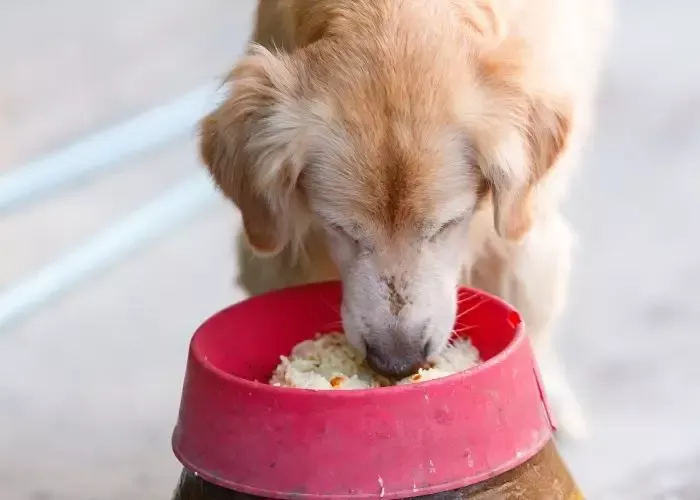Which human foods are safe for their furry friends. One of the most common questions I get is whether dogs can eat Kentucky mashed potatoes. In this article, I will provide a detailed answer to this question, including the nutritional content of KFC mashed potatoes, the potential risks and benefits of feeding to dogs, and some alternative food options for dogs.
What are KFC Mashed Potatoes?
KFC mashed potatoes are a popular side dish served at Kentucky Fried Chicken restaurants worldwide. They are made from mashed potatoes mixed with butter, milk, and seasonings such as salt and pepper. KFC mashed potatoes are usually served with gravy, which is made from chicken stock, flour, and seasonings.
Nutritional Content of KFC Mashed Potatoes
Before we can determine whether dogs can eat KFC mashed potatoes, we need to take a closer look at their nutritional content. According to the KFC website, a single serving of mashed potatoes (without gravy) contains the following:
- Calories: 120
- Total fat: 4g
- Saturated fat: 2g
- Trans fat: 0g
- Cholesterol: 10mg
- Sodium: 440mg
- Total carbohydrates: 19g
- Dietary fiber: 2g
- Sugars: 1g
- Protein: 2g
It’s important to note that these nutritional values may vary depending on the specific recipe used by each KFC restaurant. Additionally, the nutritional content of KFC mashed potatoes with gravy will be different from that of plain mashed potatoes.
Can Dogs Eat KFC Mashed Potatoes?
The short answer is yes, dogs can eat KFC mashed potatoes in moderation. However, there are a few things you need to keep in mind before feeding them to your furry friend.
Firstly, KFC mashed potatoes are high in sodium, which can be harmful to dogs in large quantities. Too much sodium can lead to dehydration, electrolyte imbalances, and other health problems. Therefore, it’s important to limit the amount of mashed potatoes you give to your dog and avoid feeding them KFC mashed potatoes with gravy, as it contains even more sodium.
Secondly, KFC mashed potatoes contain dairy products such as butter and milk, which can be difficult for some dogs to digest. Dogs that are lactose intolerant may experience gastrointestinal problems such as diarrhea, vomiting, and gas if they consume too much dairy. Therefore, it’s important to monitor your dog’s reaction to KFC mashed potatoes and stop feeding them if they show any signs of digestive distress.
Finally, KFC mashed potatoes are not nutritionally complete and should not be used as a substitute for your dog’s regular meals. Dogs need a balanced diet that includes protein, carbohydrates, fats, vitamins, and minerals to stay healthy. Feeding your dog too many KFC mashed potatoes can lead to nutritional deficiencies and other health problems.
Benefits of Feeding Dogs KFC Mashed Potatoes
While KFC mashed potatoes should not be a staple in your dog’s diet, they can provide some benefits when given in moderation. For example, mashed potatoes can be a good source of carbohydrates for active dogs that need extra energy. Additionally, the butter and milk in KFC mashed potatoes can provide some healthy fats and vitamins that are good for your dog’s skin and coat.
Alternative Food Options for Dogs
If you’re looking for alternative food options to KFC mashed potatoes, there are plenty of healthy and safe human foods that dogs can enjoy. Some examples include:
- Cooked lean meats such as chicken, turkey, and beef
- Cooked vegetables such as carrots, green beans, and sweet potatoes
- Fruits such as apples, bananas, and blueberries
- Plain cooked rice or pasta
- Plain cooked eggs
When feeding your dog human food, it’s important to avoid foods that are toxic to dogs such as chocolate, grapes, onions, and garlic. Additionally, you should always feed your dog in moderation and avoid giving them too many treats, as this can lead to obesity and other health problems.
Conclusion
In conclusion, dogs can eat KFC mashed potatoes in moderation, but there are some potential risks and benefits to consider. KFC mashed potatoes are high in sodium and contain dairy products, which can be harmful to some dogs. However, they can provide some healthy fats and carbohydrates when given in moderation. If you’re looking for alternative food options for your dog, there are plenty of healthy and safe human foods that they can enjoy. As always, it’s important to monitor your dog’s reaction to new foods and consult with your veterinarian if you have any concerns about their diet.
Related Topics:


